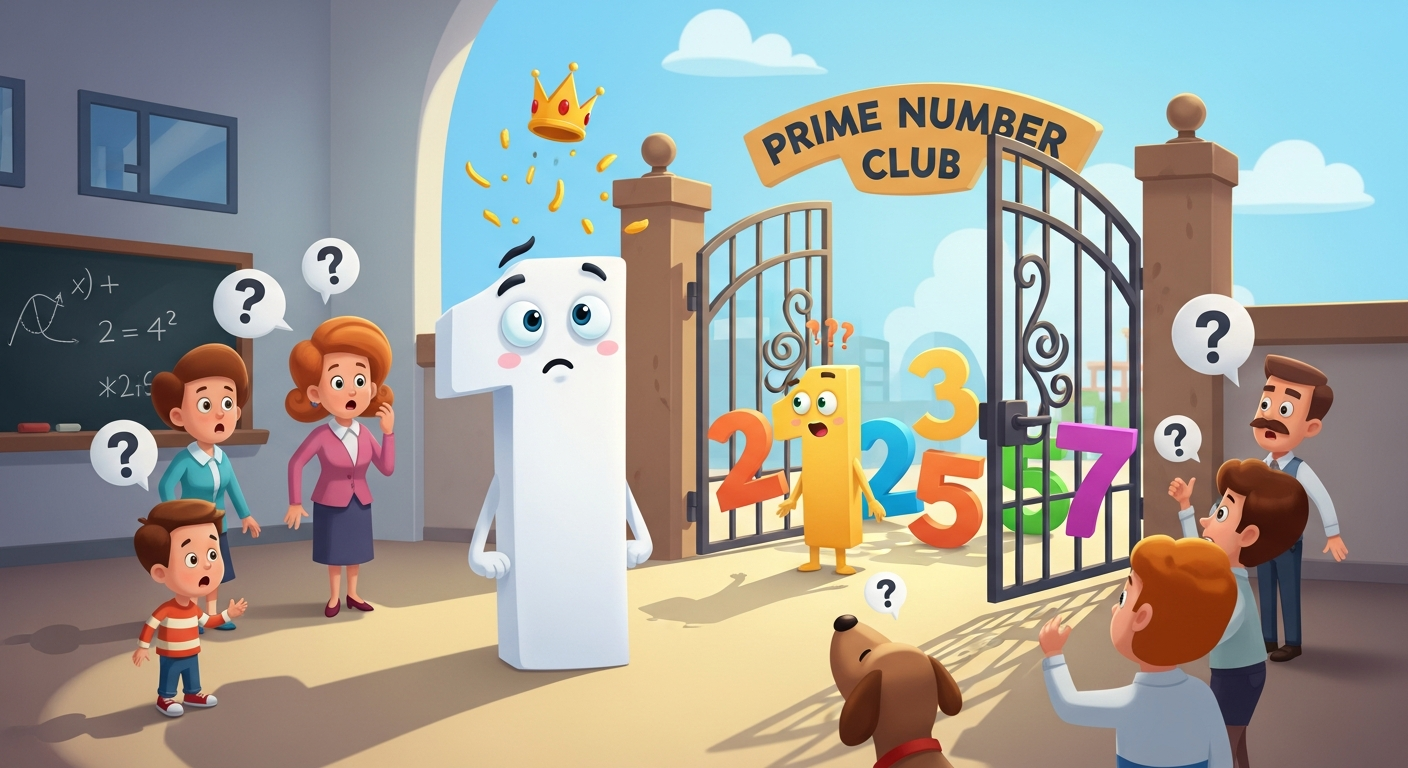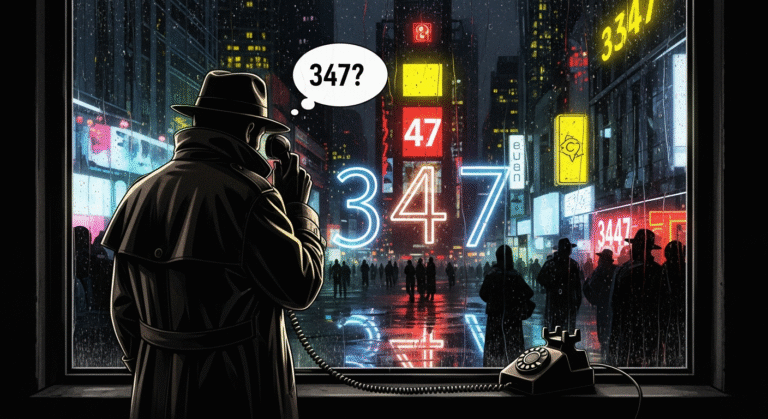Is 1 a Prime Number? The Simple Answer with a Big Meaning
Is 1 a prime number? This question might sound easy, but it has a very interesting answer. Many kids and even adults get confused about whether 1 is a prime number or not. When we learn about prime numbers in school, we are told that they are numbers that have only two factors: 1 and itself. So, people might think 1 is a prime number because it looks like it fits that rule. But the truth is, 1 is not a prime number. In this blog post, we will explain the real reason why 1 is not in the prime number club, in a fun and easy way. If you’ve ever wondered about this tiny number, keep reading. You’ll be surprised by how important this question really is!
Many math teachers, books, and websites agree on one thing: 1 is not a prime number. But why is that the case? To understand it better, we need to look at the true meaning of what a prime number really is. A prime number has exactly two different whole number factors — one and the number itself. The number 1 has only one factor, which is itself. That means it doesn’t meet the rule. This rule was made a long time ago by smart math people to keep things in order, especially when working with bigger numbers like 3, 5, 11, or 17. If we called 1 a prime, it would mess up patterns and math ideas we use every day. So, saying 1 is not a prime number helps math stay clear and simple for everyone. This small detail makes a big difference in the world of numbers!
What Does “Is 1 a Prime Number” Really Mean?
When we ask, “is 1 a prime number,” we are trying to see if the number 1 follows the special rule of prime numbers. Prime numbers are whole numbers that have only two factors: 1 and the number itself. For example, 2 is a prime number because it has two factors: 1 and 2. But 1 is different. It has only one factor — just the number 1. So, it does not follow the rule. That means 1 is not a prime number. This is a common question for kids learning math, and it’s okay to ask it! Learning why 1 is not prime helps us understand numbers better and makes math rules easier to follow as we grow.
Why 1 Is Not in the Prime Number Group
The number 1 is not in the prime number group because it doesn’t fit the rule that all prime numbers must have two factors. Prime numbers like 3, 5, and 7 have two factors each: 1 and the number itself. But the number 1 only has one factor — just itself. So it’s not counted as prime. Math experts made this rule long ago to help make math easier and more organized. If we called 1 a prime number, it would mess up many math ideas and patterns. That’s why 1 is in its own group and not in the club of prime numbers. It’s still special, just not a prime!
Easy Way to Understand If 1 Is a Prime Number
Here’s an easy way to remember: Prime numbers always have two different whole number factors. Think of the number 5 — it can be divided only by 1 and 5. That makes it a prime number. Now let’s look at 1. It can only be divided by 1. That’s just one factor. So it doesn’t fit the prime number rule. Imagine needing two puzzle pieces to make a match. The number 1 only has one piece, so it doesn’t complete the prime puzzle. That’s why 1 is not a prime number. If you keep this simple trick in mind, you’ll never be confused about it again!
Is 1 a Prime Number or Just a Special Number?
Even though 1 is not a prime number, it is still a very special number in math. It is the very first counting number. We use it every day when we count or start something new. In math, 1 is called a “unit.” It’s the building block for all other numbers. But when it comes to prime numbers, it doesn’t fit the rules. Prime numbers need two factors. The number 1 has only one. So it’s not in the prime group, but that doesn’t make it less important. It’s still a cool number with a big job in math and life!
What Makes a Number Prime and Where 1 Doesn’t Fit
To be a prime number, a number needs to follow one simple rule: it must have exactly two factors — 1 and itself. Let’s check this with the number 7. The number 7 can only be divided by 1 and 7, so it’s prime. Now look at 1. The number 1 only has one factor — just itself. That breaks the rule. Because of this, 1 doesn’t fit in with the prime numbers. It’s like trying to play a game with a different set of rules. That’s why math teachers and books say 1 is not a prime number. It keeps math fair and easy to understand.
How Prime Numbers Work: Why 1 Is Left Out
Prime numbers are like math building blocks. We use them to build other numbers using multiplication. For example, 2 × 3 makes 6, and both 2 and 3 are prime numbers. They follow the rule of having two factors. The number 1, though, only has one factor. So it can’t be used the same way. If we used 1 as a prime, math would get very confusing. We wouldn’t know when to stop using it in equations. That’s why the number 1 is left out. It makes math cleaner and easier when we follow this simple rule.
Conclusion
So now we know the answer to “is 1 a prime number?” The answer is no. It only has one factor, and prime numbers need two. Even though it’s not prime, the number 1 is still super important in math. It helps us count, start things, and understand numbers better.
When we follow the math rules, everything makes more sense. Knowing why 1 is not a prime number helps us see how numbers work together. And next time someone asks you, you’ll know the fun and smart answer!
FAQs
Q: Is 1 a prime number?
A: No, 1 is not a prime number because it has only one factor.
Q: Why is 1 not in the prime number list?
A: Because prime numbers must have two factors, and 1 has just one.
Q: Is 1 still important in math?
A: Yes! Even though 1 is not prime, it’s still a very special and helpful number.





